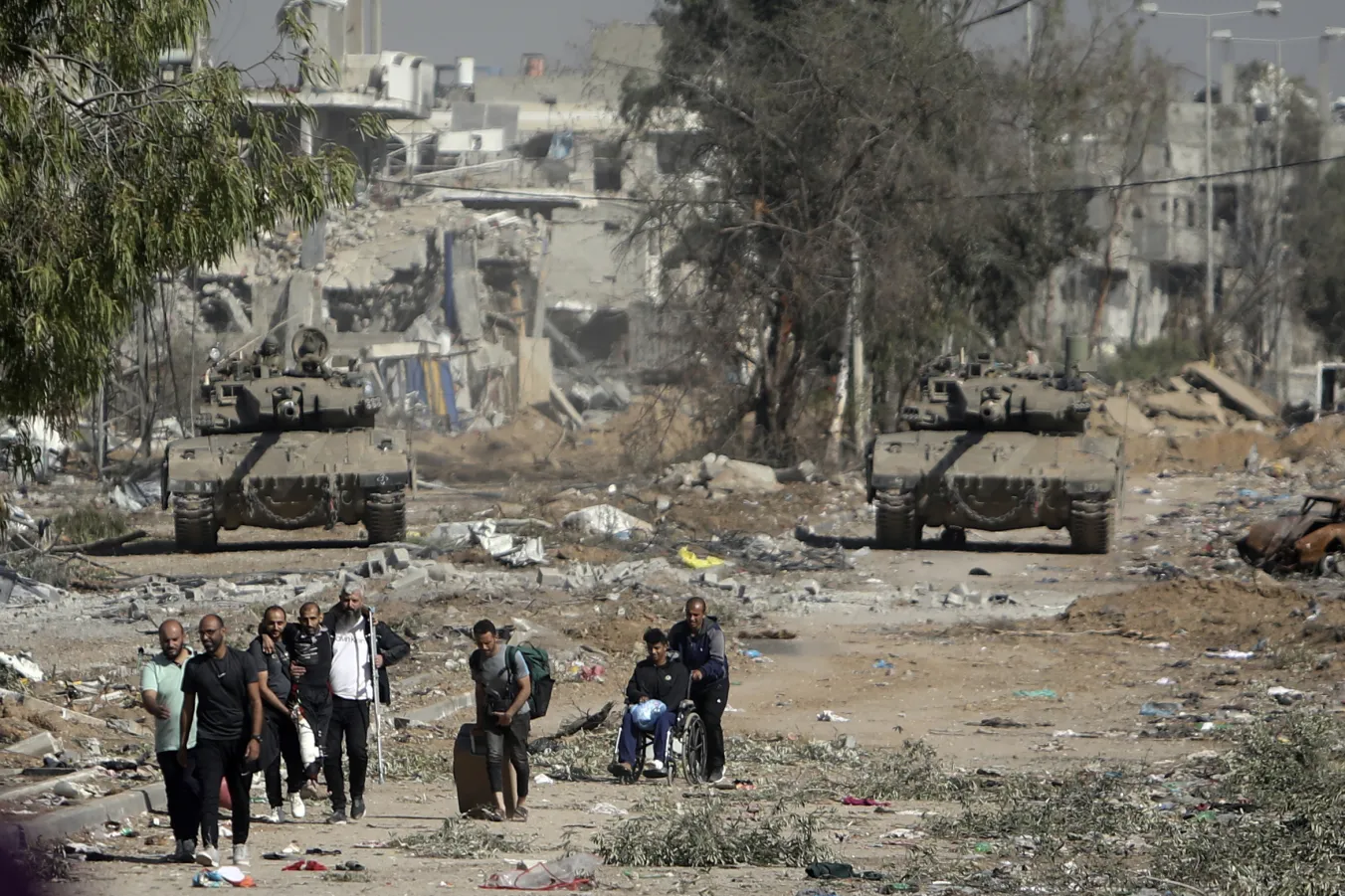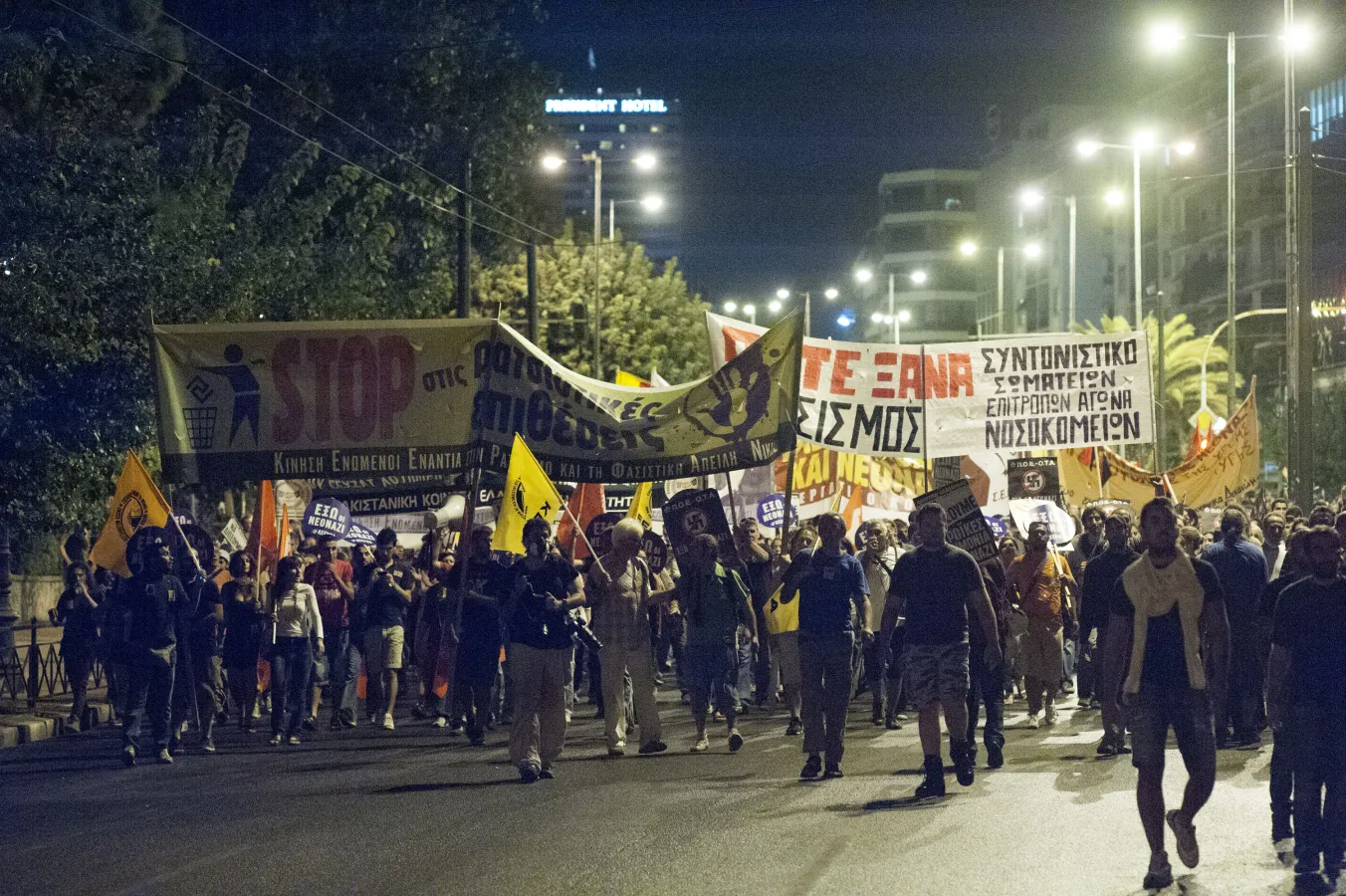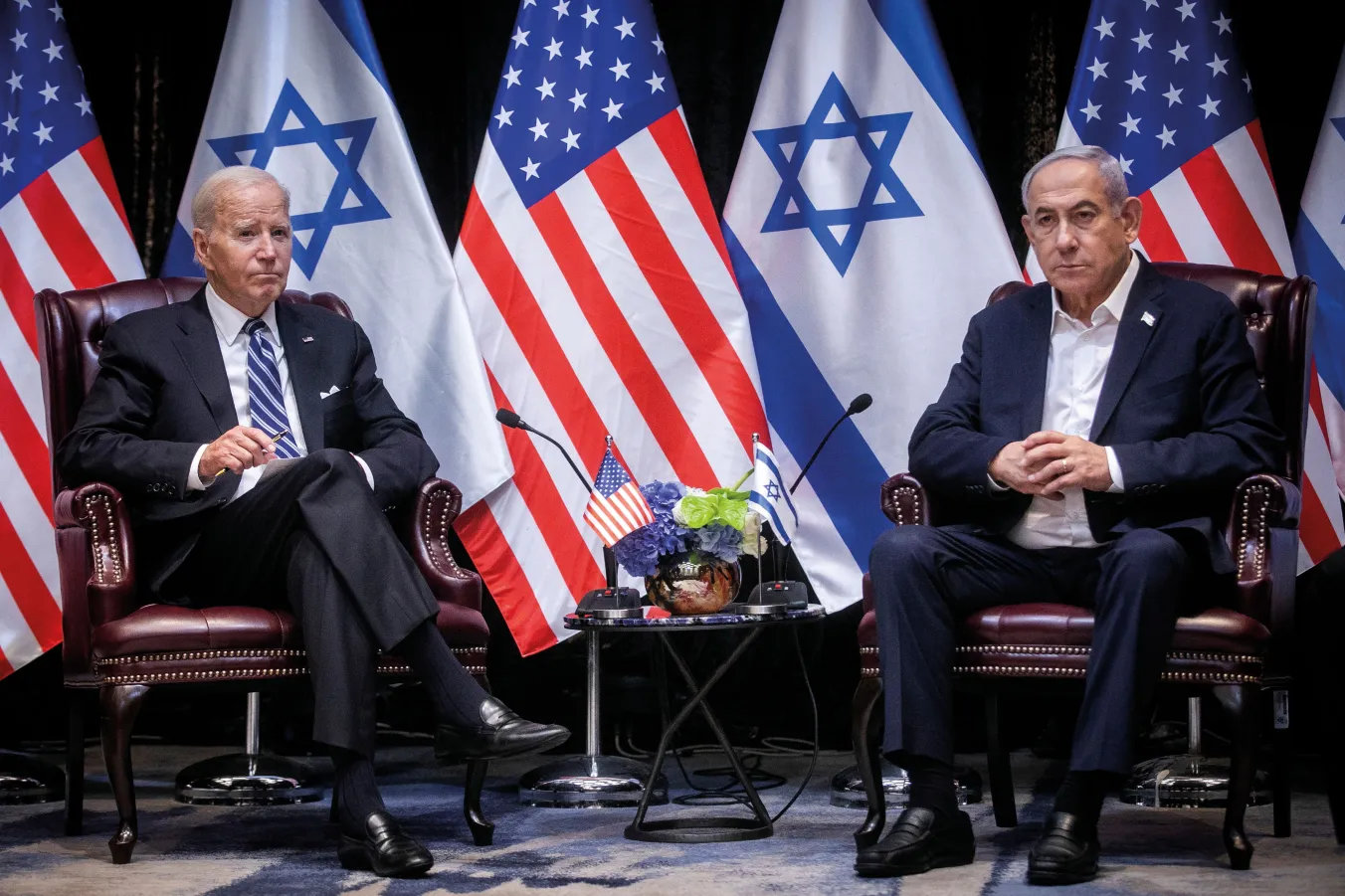
ONE call of under 30 minutes. Within hours of Joe Biden putting the phone down, Benjamin Netanyahu’s cabinet agreed to reopen the Erez crossing to northern Gaza and allow aid through the port of Ashdod — “temporarily.”
These would be the aid and crossings that the pathological liars of the Israeli state claimed had been unimpeded all along.
Half an hour of the US president mooting possible conditions to be placed on military supplies to Israel if it does not “protect civilians” and humanitarian workers and there’s an immediate result.
It is one the fascist right in Israel is already attacking, though there is a long way from the rushed government statement to any real change on the ground.
One phone call is all it took. That gives the lie to the hand-wringing from Washington and London for months about how they could possibly persuade Israel to curb its rampage.
Biden says he wants a ceasefire — it could happen today if he cut off arms and aid. Britain’s arms exports to Israel are small but critical to parts of its military machine. It could do the same. The pressure is mounting this weekend, with most people in favour of doing so.
It has taken an enormous amount more than a phone call, of course, to reach this point. There is the catastrophic suffering but incredible resistance of the Palestinian people these last six months: in Gaza, in the West Bank, within the 1948 Green Line, in the refugee camps and in the diaspora.
There can be little doubt either that this intervention by Biden, while woefully insufficient, is the product of the global solidarity movement that is scoring concrete advances — including in what’s left of the international institutions.
After half a year of “plausibly genocidal” war and of unprecedented, sustained civil-society mobilisation, it can become difficult to identify shifts and turning points. We are at one now.
Last month Netanyahu launched an assault on Democrat Party Senate leader Chuck Schumer for daring to call for elections in Israel. The thuggish prime minister’s view is that Israel may dip its hand in US elections, but not the other way around. He also cancelled a visit to Washington when the White House refused to veto a UN resolution.
This week, Benny Gantz of the Israeli war cabinet called for elections in September in a direct challenge to Netanyahu, who also had to act on the admonishment from Washington.
Support in Israel for the exterminationist war drive is wider than him. At the same time, the political tensions suppressed by the war lust remain real. They are destabilising, even if leaders share the war’s aims, whatever they in fact are.
Developments outside Israel have an effect upon its government and the course of the war. Mass oppositional movements are in turn impacting governments and political systems internationally which are part of the infrastructure of support for the Israeli state.
What you or I do in deepening and widening the anti-war and pro-Palestine movements is a small link in a chain connected to decisive world events. This most important truth of the last six months is the one that our rulers are most desperate to bury.
Wisconsin is the latest state primary in the US where the number of people registering a protest vote against Biden is more than his margin of victory over Trump four years ago. Twice so.
Even in New York, a state that will not change hands, it seems one in eight primary voters did the same.
The noises from top Democrats and, off the record, from state officials for ending Israel’s genocidal assault are growing louder as Biden becomes more frustrated that he is losing support.
The ever-opportunist Donald Trump spots an opening by telling Israel to “get your war over with.” He’s demonstrably no friend of the Palestinians. But he’s cunning enough to play this electorally.
In Britain, matters are even more stark. It is Easter week and the last few days of Ramadan. Yet the level of engagement over Palestine remains extraordinary. It is having a direct political effect.
What was already a crack within the Tories over craven support for Israel’s war (contrast with the sanctified Margaret Thatcher, who did on two big occasions say “no” to Tel Aviv) is widening.
A trickle of MPs joining the call for an arms embargo is growing. Former MP and minister Alan Duncan, who was targeted by an Israeli embassy dirty tricks operation, has renewed his longstanding polemic against the Tories’ uncritical support for Israel and the outsized role of those who press the demands of whatever comes out of Tel Aviv.
Howls of “anti-semitism” in response by right-wing Israel supporters are falling flat. Not only is Duncan not remotely anti-semitic, he is rather wealthy and very capable of defending his reputation.
This week also we have had an unprecedented intervention by what on Friday stood at 800 lawyers and former judges making a case that Britain is in breach of international humanitarian and domestic laws by continuing to arm Israel.
It is no ritual collective letter. Four signatories are former Supreme Court justices. Among them are Brenda Hale, the ex-president and doyenne of the high-liberal wing of the legal Establishment, and Jonathan Sumption, embodying the serious and clever conservative side.
Add in the former permanent secretary of the Foreign Office — the kind of character who’d be called out of retirement in a John Le Carre novel to fix a foreign security emergency — and an ex-chief of MI6 both calling for a halt to arms sales, and you get an inkling of the growing Tory crisis.
Civil servants and their PCS union have warned of legal and other action as their bosses refuse to guarantee that they are not criminally liable for working on arms shipments. The government will not release its legal advice.
Following the second world war, we universally rejected the “I was only following orders” defence.
The haggard face of Foreign Secretary Lord David Cameron suggests that awareness of legal vulnerabilities alongside the obvious political damage has penetrated high places.
He was brought back to government on a mini-tour of duty to provide some gravitas and, it’s suggested, help him regain some standing after his blunders from the Establishment standpoint over Brexit and, from any point of view, Libya. It may now be Gaza that completes the triptych of his charge sheet.
The leaders of the SNP and Lib Dems were nimble enough to call for an immediate arms embargo in the wake of Israel’s murder of the seven World Central Kitchen (WCK) workers.
The WCK worked providing meals for Israelis following October 7 as their own state failed. It did similarly in Ukraine.
That Israel bombed three times the identified and agreed convoy of such a sympathetic organisation revealed to more people the wantonness of its murder machine. We now know that it is using AI for target selection with no human oversight.
The scale of what is at stake in what is now a pivotal moment in world affairs is becoming ever clearer this weekend.
In Britain, it is a total refutation of the asinine Westminster commentary that spent months pronouncing Palestine, opposition to militarism and foreign policy generally as marginal to the thinking, lives and political choices of ordinary people.
It is also a bitter blow for the vapid leadership of the Labour Party. It is behind the grandson of Winston Churchill, Nicholas Soames when it comes to calling for action against Israel. Keir Starmer seems to be waiting for Rishi Sunak to announce some curb on arms before he demands one. Cowardly, unless he is attacking the same people the Tories are.
The kaleidoscopic but driven process of labour movement people and others looking for some political alternative, with electoral expressions where possible, continues.
That’s despite the general election getting closer and people wanting this government out.
There is something else of even greater importance.
The post-Holocaust international body crafted to prevent a recurrence has declared that a genocide is plausibly taking place and the ICJ has issued orders for restraining actions.
They have been, in effect, ignored. Not only by Israel but by the US, Britain and other major states. The wider the global calls to bring this to an end, the more the prime minister of the state in the dock pronounces the end of the “rules-based international order” — with a smirk.
Israel had drawn credibility by promoting itself as the embodiment of the post-war, global liberal system (let’s park the reality). Netanyahu now says none of that applies — the German political class may want to take note.
It is back to brute force, ethno-nationalist war and power.
Recognising that Israel has lost politically, he says that everyone is against Israel because “they have been against us for two thousand years.” It is back to ethnic particularism, after Israel for decades sought to showcase itself as a bastion of universal values.
It is back to the pell-mell of chauvinist and imperialist conflict out of which the zionist movement was a terrible response to the disastrous failures of capitalism. Those in turn led to the midnight of the century.
The inhibitions and restraints that came in its wake are now being shattered. That is the meaning of Israel’s war. That is the world-historic question posed today.
That is the issue, beyond immediate electoral and political calculations, however important, that has to be pressed against all politicians and public figures today.
Will we stop this descent into barbarism? Must we go through hell again, as the Palestinians are — but on an even bigger scale?

















